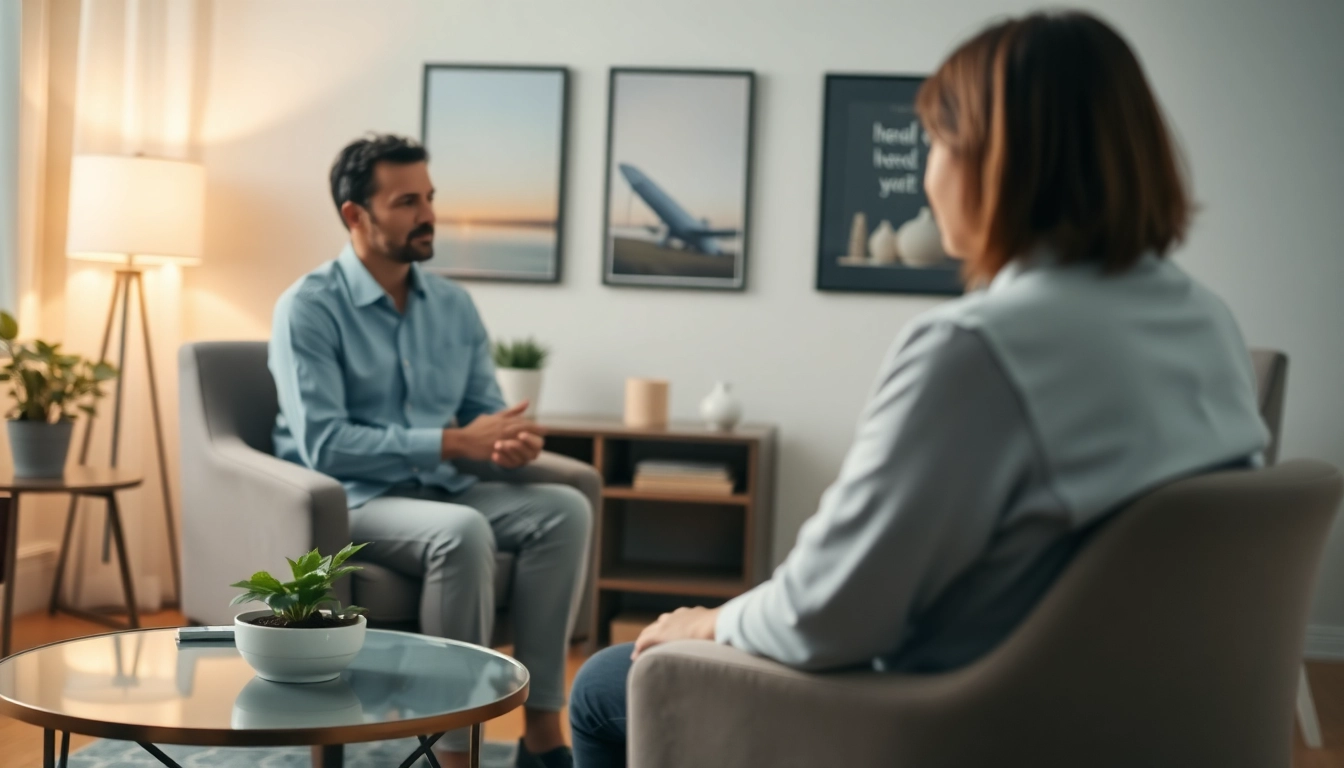
Introduction to Attachment Theory Specialist
Attachment theory is a vital framework that explains how the bonds we form with others in early childhood influence our relationships and emotional wellbeing throughout our lives. A professional attachment theory specialist focuses specifically on guiding individuals to understand and navigate these complex relationship dynamics. By leveraging strategies from attachment theory, these specialists play a crucial role in fostering healthier relationships and promoting emotional growth.
Defining Attachment Theory
Attachment theory, developed by psychologists John Bowlby and Mary Ainsworth, categorizes the patterns of attachment that individuals form in their early relationships, particularly with caregivers. It identifies four primary attachment styles:
- Secure Attachment: Characterized by healthy, trusting relationships and the ability to express emotions openly.
- Avoidant Attachment: Marked by emotional distance and a reluctance to rely on others.
- Ambivalent Attachment: Featuring anxiety and insecurity in relationships, often requiring constant reassurance.
- Disorganized Attachment: Reflecting a lack of clear attachment behaviors, often stemming from trauma or unpredictability in caregiving.
These styles can affect interpersonal connections, professional relationships, and self-perception. Understanding attachment theory’s implications provides a foundation for personal development and therapeutic intervention, making the role of an attachment theory specialist pivotal in addressing emotional and relational issues.
Importance of Specialty in Therapy
The significance of an attachment theory specialist is rooted in their expertise in recognizing and addressing the nuances of attachment styles. They provide targeted approaches to therapy that help individuals not only understand their relational patterns but also work towards healthy, sustainable change. This specialty is crucial for those who have experienced trauma, loss, or adversity, as a deeper understanding of attachment can be a transformative aspect of the healing process.
Common Misunderstandings about Attachment Styles
Despite growing awareness, several misconceptions about attachment styles persist, including:
- Attachment Styles are Fixed: Many believe that once established, attachment styles cannot change. In reality, with effective therapy and self-awareness, individuals can develop more secure attachment.
- Attachment Theory Applies Only to Childhood: While early interactions shape attachment styles, these patterns can continue to evolve and impact adult relationships significantly.
- Attachment is Simply About Love: Attachment is a complex interplay of emotional and psychological factors that transcends romantic relationships.
A comprehensive understanding of these misconceptions helps clients navigate their relational dynamics more effectively, working towards healthier patterns under the guidance of a qualified specialist.
Services Offered by Attachment Theory Specialist
Attachment theory specialists offer a broad range of services geared towards addressing the specific needs of their clients. Their tailored approach can include:
Individual Therapy Sessions
During individual therapy, specialists work one-on-one with clients to explore their unique attachment styles and the impact on their lives. This personalized approach leads to:
- Enhanced self-awareness regarding emotional triggers and relational patterns.
- Tailored coping strategies to manage emotions effectively.
- Techniques to foster resilience and promote secure attachments.
These sessions can be instrumental in uncovering root issues stemming from childhood, allowing individuals to initiate healing and growth.
Couples Therapy and Relationships
Couples often seek the assistance of an attachment theory specialist to improve relationship dynamics. In these sessions, therapists focus on:
- Identifying attachment styles present in each partner.
- Facilitating open communication about emotional needs and vulnerabilities.
- Developing strategies to enhance emotional connection and intimacy.
Effective couples therapy can lead to a fundamental shift in relationship satisfaction and stability, fostering deeper intimacy and understanding.
Workshops and Group Sessions
Attachment theory specialists may also conduct workshops and group sessions to raise awareness about attachment issues among larger audiences. These group settings enable participants to:
- Share experiences and learn from one another.
- Practice interpersonal skills in a supportive environment.
- Gain insights from various perspectives on attachment-related challenges.
Such group interactions can significantly enhance emotional intelligence and foster a sense of community and support.
Choosing the Right Attachment Theory Specialist
Selecting an attachment theory specialist can feel overwhelming, especially with the range of choices available. Here are critical factors to consider when making this decision:
Qualifications and Certifications to Consider
When searching for the right specialist, it’s essential to verify their credentials and experience in attachment theory:
- Look for licenses in psychology, social work, or counseling.
- Check for additional certifications in attachment-focused therapy.
- Consider their training in trauma-informed care if relevant to your needs.
A qualified specialist will not only have the necessary education but also practical experience understanding and treating relational patterns based on attachment theory.
Questions to Ask During Consultations
Engaging in initial consultations is an excellent opportunity to gauge a specialist’s expertise and compatibility. Consider asking:
- What is your approach to treating clients with attachment-related issues?
- Can you explain how you integrate attachment theory into your practice?
- What successful outcomes have you seen from your work with other clients?
These questions can help clarify how the specialist aligns with your goals for therapy.
Evaluating Compatibility with Your Needs
Beyond qualifications, assessing compatibility is equally crucial. Therapeutic success often relies on the comfort level between the client and therapist. Think about:
- Your comfort with their communication style and approach.
- Whether their values align with your outlook on relationships and personal growth.
- Accessibility regarding location, hours, and session format.
Feeling at ease with a specialist fosters openness and maximizes the therapeutic process.
Benefits of Working with an Attachment Theory Specialist
The impact of collaborating with an attachment theory specialist extends well beyond the therapy room, leading to significant advancements in emotional and relational health:
Enhancing Emotional Intelligence
Understanding one’s attachment style directly correlates with improved emotional intelligence. Attachment specialists equip clients with tools to:
- Recognize and name their emotions.
- Understand emotional responses in themselves and others.
- Manage emotional reactions more effectively.
Such enhancements contribute to healthier, more trusting relationships in both personal and professional contexts.
Improving Relationship Dynamics
Working with a specialist can lead to transformative shifts in relationship dynamics. Clients often experience:
- Greater empathy towards partners, family members, and colleagues.
- Improved conflict resolution strategies.
- A deeper understanding of relational patterns, leading to healthier interactions.
As relationship dynamics improve, clients can build stronger, more fulfilling connections with others.
Fostering Self-Awareness and Growth
The journey with an attachment theory specialist fosters profound self-awareness and personal growth. Clients can:
- Identify situational triggers and behavioral responses.
- Create realistic pathways for self-improvement.
- Explore autonomy while establishing healthy boundaries.
This holistic understanding of oneself forms the cornerstone of effective personal development and empowerment.
Conclusion: The Impact of Attachment Theory Specialist on Personal Development
Engaging with an attachment theory specialist can be a transformative experience, unlocking pathways to healing and growth.
Long-Term Benefits and Outcomes
The long-term advantages of working with a specialist include:
- Increased emotional resilience.
- Lasting improvements in relationship satisfaction.
- Continued growth toward secure attachment in future relationships.
Clients often find themselves equipped with tools for lifelong wellbeing and relationship satisfaction.
Building Support Networks
An inherent part of working with attachment theory specialists involves recognizing the importance of social support. By fostering deeper connections, clients are encouraged to build networks of supportive relationships, which are fundamental to sustained mental health and wellbeing.
Continuing the Journey of Healing
Embracing the principles learned during therapy can pave the way for ongoing growth. Clients are encouraged to reflect on their journey, apply learnings to new challenges, and maintain communication with their specialist as they navigate future relational dynamics.
Ultimately, the guidance of an attachment theory specialist not only improves attachment patterns but also enriches every aspect of one’s life, enhancing personal fulfillment and relational depth.





